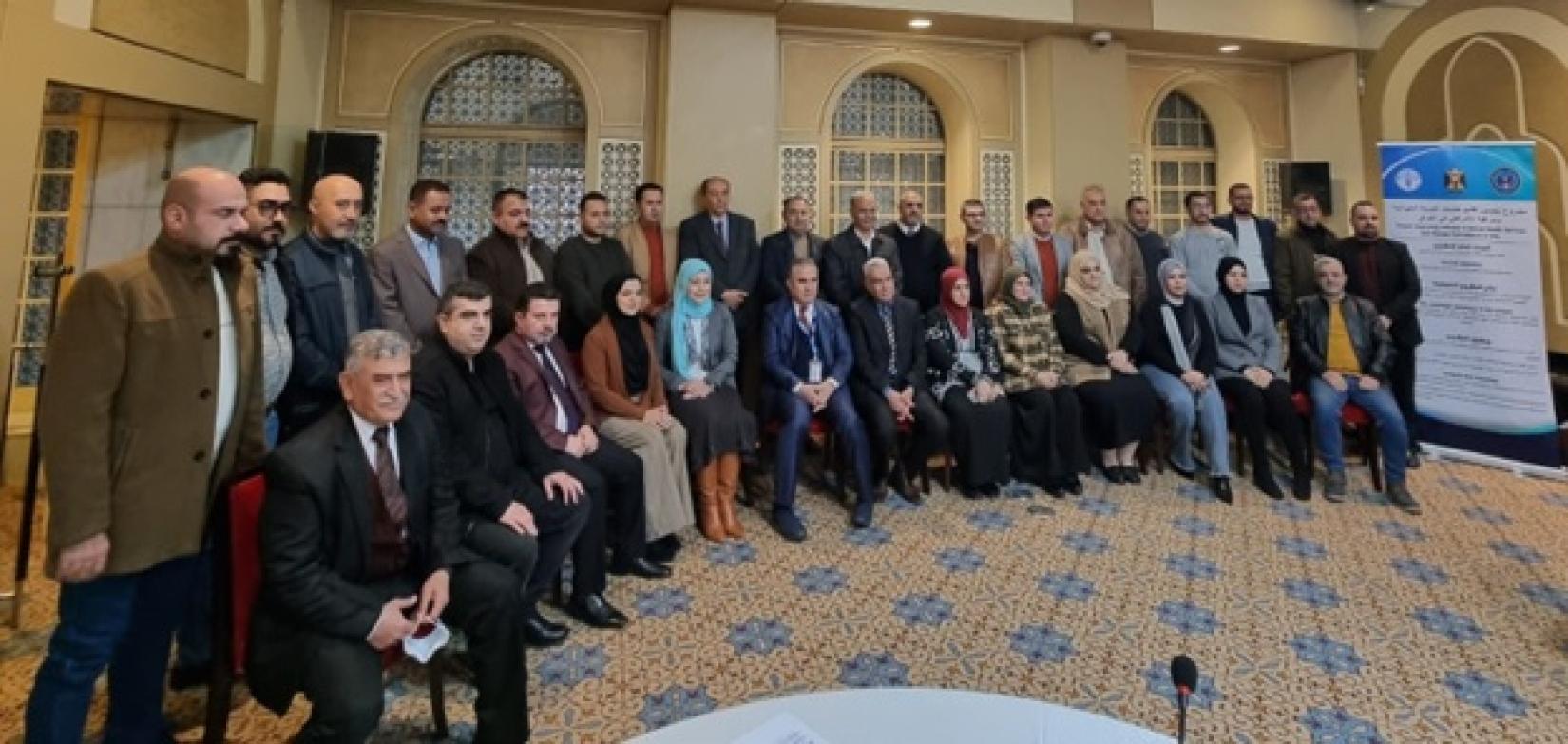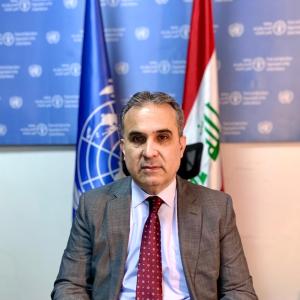FAO Training on Quarantine and Border Inspection Procedures
09 January 2023

Baghdad, 8 January 2023 - The Food and Agriculture Organization of the United Nations (FAO), in coordination with the Ministry of Agriculture (MoA) and Ministry of Agriculture and Water Resources (MoAWR)-KRG hosted the Quarantine and Border Inspection Procedures Workshop, as part of the United States Defense Threat Reduction Agency (DTRA) funded project, Improving Delivery of Animal Health Services and Disease Surveillance in Iraq. The workshop aimed at strengthening the knowledge and skills of quarantine and border inspection staff to implement the quarantine procedures.
Thirty specialists from the veterinary services in Baghdad, Erbil, Duhok, Nineveh, Anbar, Wasit, Muthanna and Basra and two from the Ministry of Health (MoH) participated to the training. The opening session was attended by the FAO Representative in Iraq and officials from relevant ministries.
Maintaining the health and safety of animal wealth; developing the livestock sector and upgrading its production, also as a food security tool; preserving the safety of products of animal origin and preventing the incoming and outgoing of animal diseases through strong border inspection is important to protect human health and safety of agriculture, forestry, animal husbandry, fishery and environment said the FAO Representative, Dr Salah ElHajj Hassan.
During the workshop, the national and international experts discussed the legal framework in Iraq on quarantine inspection and borders control of live animals and animals’ products; the international standards including the World Organisation for Animal Health (founded OIE), the FAO-WHO Codex Alimentarius for food safety, and the International Plant Protection Convention (IPPC) for plant health; Animal Health Hazards Identification for the Trade of Animals and Animal Products.
The training focused on qualitative, semi-quantitative and quantitative risk assessments, the key tools for countries quarantine protection measures identifications and risk mitigations of introduction of pathogenic agents from other countries.
The workshop also covered the principles and process of veterinary certifications and border inspection systems. Overall, the five days training should contribute to strengthen the Quarantine Departments capacities to monitor importations’ requirements for live animals and animal’s products through improved, risk evaluation and mitigation.

He started his career in 1984, as Senior Research Assistant in the Agricultural Research and Education Centre (AREC), American University of Beirut. From 1987 to 1991, he was Coordinator of the Student Training Programme, and also Agriculture and Horticultural Teacher for the Faculty of Agriculture, at the Lebanese University.
From 1991 to 1995, he worked as Agricultural Engineer at the Ministry of Agriculture, Bekaa Regional Office, Zahlah and was then assigned to the Agricultural Research Institute in the Tal Amara station, first as Head of the Crop Production Department and subsequently in charge of the Plant Protection Laboratory. From 2002 to 2006, he was Director of the Kfardane Research Station (Agricultural Research Institute). In 2008, he became Visiting Scientist at the International Maize and Wheat Improvement Centre (CIMMYT) and Coordinator of a project with the International Centre for Atomic Energy Agency, Vienna.
In 2010, he served as Advisor to the Minister for Agriculture of Lebanon. In 2011, he became President of the Pesticide Scientific Committee, Head of the Phytoplasma Committee and Director of the Agriculture and Rural Development Programme (ARDP) (EU-funded project). From 2010 to 2013, he represented Lebanon in negotiations with EU, Egypt, Jordan and Iraq. During his career, Mr Hajj Hassan also carried out a number of other functions. He represented the Lebanese Agricultural Research Institute (LARI) in several research programmes with the International Centre for Agricultural Research in the Dry Areas (ICARDA) and the American University of Beirut. He was Coordinator of the Mashreq/Maghreb project with ICARDA, representing Lebanon in the Steering Committee, as well as being the Head of the Sugar-beet Delivery and of the Wheat Delivery Committees. For a number of years, Mr Hajj Hassan worked for the preparation of FAO TCP projects and served as the National Director of a TCP project. He joined FAO in January 2014 as FAO Representative in Yemen. Mr Hajj Hassan succeeds Mr El Zubi as FAO Representative in Iraq.


